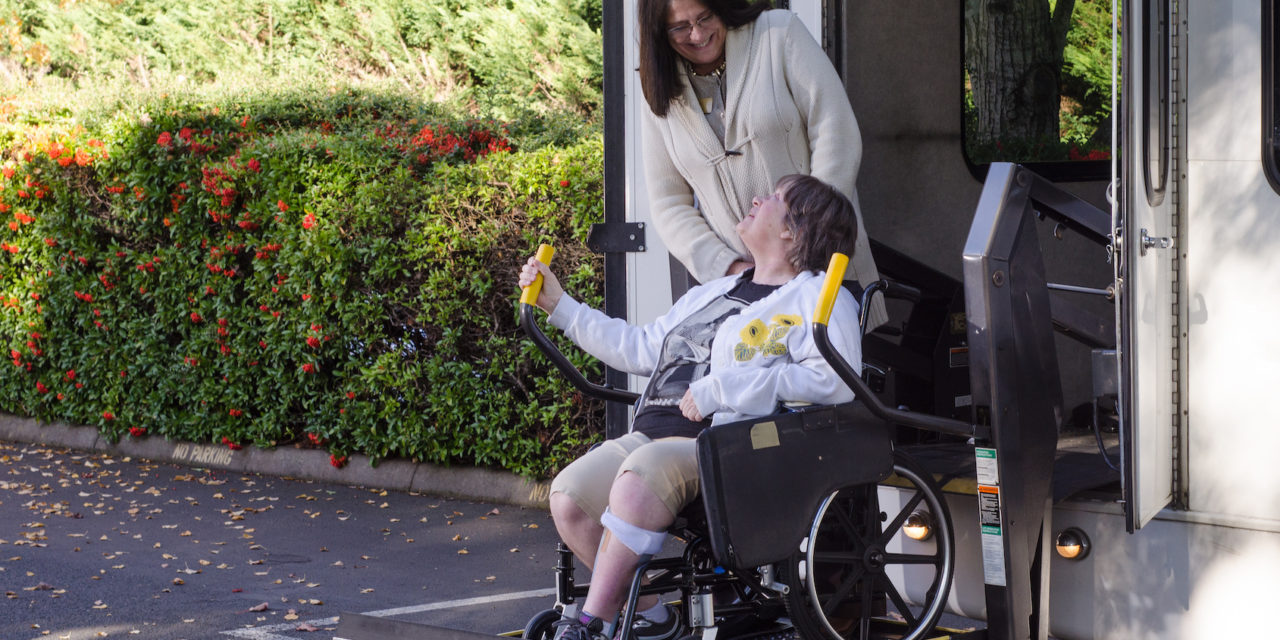Mayor Nancy Vaughan at the meeting on Tuesday, April 6 ended an effort by city staff to reduce the service provided by Access GSO, the city’s handicapped transit service.
Vaughan doesn’t have the authority to take such action, but she directed Assistant City Manager Kim Sowell to end the program initiated on March 1 that eliminated Access GSO service in the premium service area after 8 p.m. on weekdays and on weekends.
After some discussion Vaughan said, “I think we need to take a pause, to figure out exactly what is happening.”
Previously, Access GSO had operated throughout Greensboro until 11:30 p.m. on weekdays and on a weekend schedule.
Access GSO, which was previously called SCAT, is the transportation service run by GTA for people who have a disability that prevents them from riding the GTA buses.
The city is required to provide handicapped transportation service within three quarters of a mile of a bus route, but from 2005 until March 1, 2021 the city had provided handicapped transportation service throughout the city.
The fare for Access GSO is $1.50 and the cost to the city is over $30 per trip, so reducing Access GSO ridership could be a big cost savings to the city.
The program instituted on March 1 eliminated Access GSO transportation services for those living in the premium area on nights and weekends. But on nights and weekends when Access GSO service was not provided, the I-Ride service was available. I-Ride is an Uber-type service, not a shared ride service like Access GSO. And it is more expensive. The minimum fare is $6, which covers a six-mile trip. Anything over six miles costs an additional $1.50 a mile.
At the April 6 meeting, a number of speakers from the floor spoke about the hardship of the increased cost of the I-Ride fares, particularly if going to work on the weekends.
After the speakers, Sowell spoke to the City Council and said that it was not a two-tiered system, that everyone paid the same fares. She said the change was in eliminating Access GSO service in the premium area on nights and weekends.
Vaughan told Sowell to “pause” the change, but no motion was made and there was not even an unofficial vote taken. The mayor of Greensboro lacks the legal authority to direct the city staff to change a policy on transit services.
If there were, in fact, secret meetings where the majority of the City Council decided to end this policy, that would be a violation of the North Carolina open meetings law.
One interesting aspect of the March 1 change in service is that there no notification on the GTA webpage. The people effected were, according to the city, notified by mail and by an automated call service, but someone who did not get that letter or call would have no way of knowing that Access GSO service had been restricted unless they called the city and asked.


Why does city attorney and staff allow Mandate Mayor to rule by decree? Her Highness is not above the law in fact she is sworn to uphold and carry out her duties on accordance with ordinances and laws. Staff is complicit in allowing her out of control unilateral decrees. One thing is certain: elections can’t get here soon enough.
Yep this fall was going to be a grand time for cleaning house. But seems like the census wasn’t finished on time which means the election for mayor and the city council could be postponed til spring of 2022. Damn …
If that’s the case I vote Herr Vaughn have a boot installed on ALL of her means of transportation.and she can get an Uber to.
Vaughn needs to end her reign on the Council.
What about the ADA act? Where is the ACLU in this? Stop transportation for those handicapped and in need, really? Pitiful!
Lord! Please, let’s just rid ourselves of her! It’s WAAAAAAY past time!
Lord! Please, let’s just rid ourselves of her! It’s WAAAAAAY past time!
Lord! Please, let’s just rid ourselves of her! It’s WAAAAAAY past time!
Lord let’s rid our selves of her !